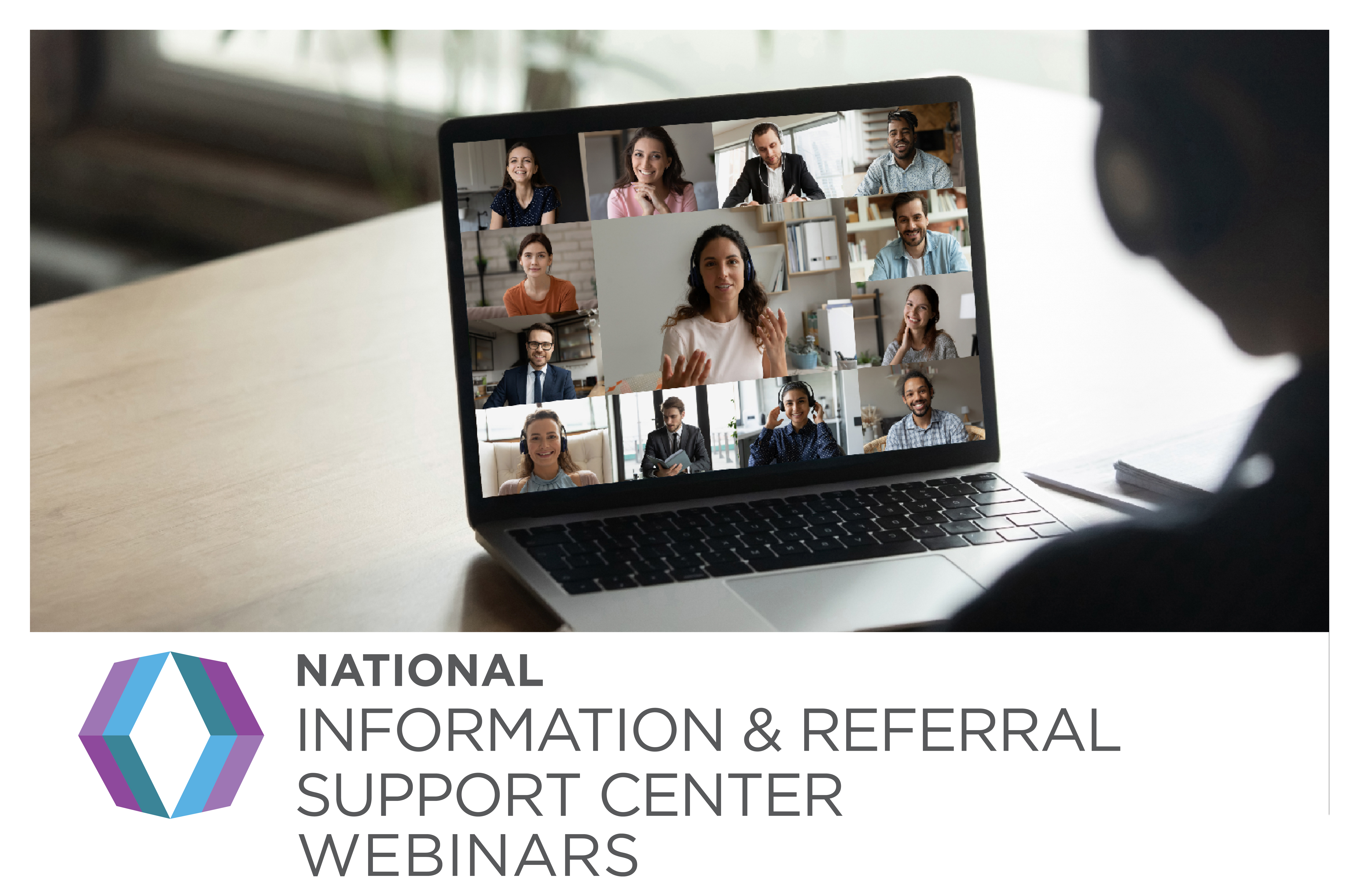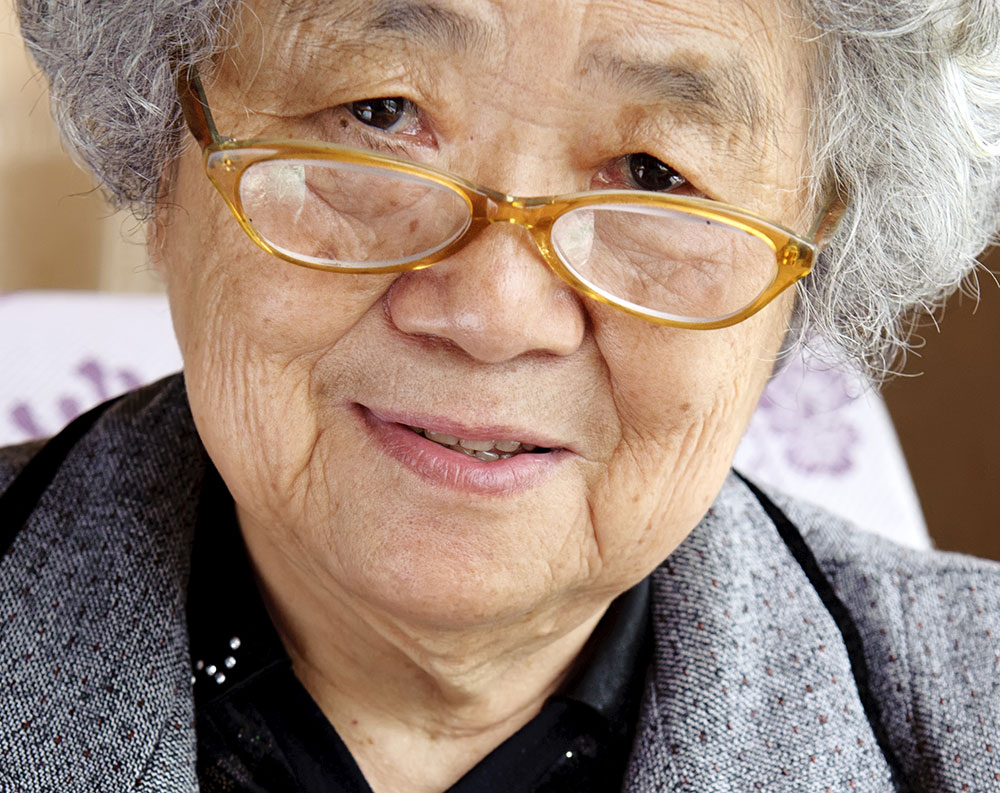
This webinar discussed retirement issues and referrals. Around 10,000 individuals reach retirement age every day in the U.S. Retirement can bring new opportunities but can also raise concerns and issues with retirement plans for workers, retirees, and their families. This webinar covers the basics of retirement plans, common issues experienced by retirees and family members, resources that promote retirement security, and referrals for pension counseling and help. Our presenter was Emily Spreiser, Legal Program Director, Pension Rights Center.
This webinar was held November 7, 2018.

Assistive Technology Act Programs increase access to, and acquisition of, assistive technology (AT) devices and services for individuals with disabilities and older adults. Programs support a continuum of AT services, from public awareness and information and assistance to loans and reuse programs. This webinar discusses the Assistive Technology Act, state programs and services, and ways that AT can be useful to individuals across the lifespan.
This webinar was held April 23, 2019.

Do you know how to talk to your clients about communicating with a person living with dementia (PLWD)? Do you know what resources are available for caregivers and PLWDs? Individuals living with dementia tend to experience behavioral symptoms and behaviors that can be challenging during the course of the progression of the disease. This webinar discusses person-centered care strategies for effective communication and challenging dementia-related behaviors. During this webinar, attendees learn more about the resources for caregivers and PLWDs provided by the Alzheimer’s Association.
This webinar was held September 17, 2019.

The identification and sharing of promising practices can help strengthen our understanding of successful outreach strategies. During this webinar, participants heard from ADvancing States and NCOA’s 2019 Innovations in Benefits Outreach contest awardees. Presenters shared about their state and local outreach practices to engage, educate, and assist individuals in need of benefits assistance. The New Jersey Division of Aging Services shared about NJSave and Feeding the Gulf Coast provided information about their senior food bag program.
This webinar was held November 19, 2019.

The effects of traumatic brain injury (TBI) can lead individuals living with TBI and their families to seek information and assistance for a variety of needs. During this webinar, participants strengthened their knowledge of TBI, the role of state TBI systems and programs, and I&R services for this population. Along with a national overview, this webinar featured two state TBI programs that have robust I&R systems for the people living with TBI and have partnered with other state agencies to broaden the reach of their programs.
This webinar was held on January 15, 2020.

Do you know the unique needs of people with spinal cord injury (SCI), traumatic brain injury (TBI), and burn injury? Are you seeking trusted strategies and user-friendly resources to support those living with these injuries and their families? This webinar explored what it is like to have an SCI, TBI, or burn injury. Panelists showcased the variety of free research-based resources that the Model Systems Knowledge Translation Center (MSKTC) has developed in collaboration with the SCI, TBI, and Burn Model System researchers. Both the MSKTC and Model Systems are funded by the National Institute on Disability, Independent Living, and Rehabilitation Research, Administration for Community Living, U.S. Department of Health and Human Services.

This course reviews the role of state and local practices in benefits outreach and enrollment for older adults and individuals with disabilities. Participants will learn about core benefit programs and challenges to accessing benefits. This course also describes sources of information trusted by older adults and persons with disabilities and identifies effective outreach strategies using those information channels. Participants will learn about state and local practices for ensuring individuals are connected to potential benefits, as well as opportunities to adjust benefits outreach and enrollment during crises and emergencies.
This course was developed with support from the National Council on Aging (NCOA) under a grant from the U.S. Administration for Community Living (ACL).

As the population
of older adults grows, increasing numbers of older adults in three distinct
categories might require the services of mental health, substance abuse, and
aging systems in the future: (1) older adults with mental health conditions;
(2) individuals who develop late-life mental health conditions; and (3) persons
living with dementia and co-occurring treatable mental health conditions or
substance abuse disorders. Aging, disabilities, and mental health network
professionals are invited to watch the recordings of this webinar training series on behavioral
health crisis management for older adults to strengthen knowledge and skills to
meet the current and future needs of older adults with, or at risk of
developing, mental illness. This training series emphasizes digital service
delivery where digital is defined as any type of technology ranging from
telephone, text messaging, smartphone apps, videoconference, videogames, and social
media to virtual reality.

Providing telephone reassurance and check-in calls is a key strategy that is being widely used across the country to address social isolation among older adults and others, particularly in light of the COVID-19 pandemic. Recognizing that certain conversation skills can help to build trust and deepen engagement, ADvancing States partnered with Emergency Design Collective to create a new Conversation Tips Toolkit designed to support reassurance and check-in programs. This Toolkit is intended to benefit volunteers and staff who are participating in outreach calls with individuals receiving services. The Toolkit provides a collection of conversation tips in the areas of building trust, creating engaging conversation, understanding expectations and roles, and caring for yourself. The Toolkit is accompanied by a ‘Buzzfeed style’ quiz referencing The Golden Girls to serve as an entry point to the conversation tips. Guidance is provided in the Toolkit on how these materials can reinforce volunteer training.

This course will provide an overview of the Asian American and Pacific Islander (AAPI) Aging population for Information & Referral/Assistance (I&R/A) staff and providers. During this course, the National Asian Pacific Center on Aging (NAPCA) National Resource Center on AAPI Aging will provide a general overview of AAPI older adult populations throughout America, including demographic trends, cultural diversity and barriers to accessing services. The course will offer strategies for staff and providers to integrate cultural and linguistic competence into their work with AAPI older adults, strengthening access to the Aging Network’s long-term services and supports system for this diverse group nationwide.

This course describes ways in which Information
& Referral/Assistance (I&R/A) staff and providers can improve services
and resources provided to people with intellectual and developmental disability
(I/DD) and their families. People with I/DD and their families may experience
several challenges over the course of their lifespan, and these challenges must
be navigated in a manner that respects how each person’s and family’s cultural
values may impact their experiences and understanding of disability. This course
will offer strategies that staff and providers may use to integrate cultural
and disability competence into their work with people with I/DD and their
families, strengthening access to the support system for this diverse group
nationwide.